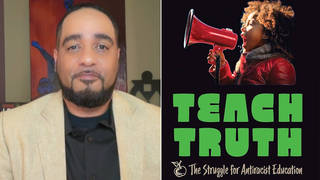
In recent years, the culture wars have raged in the sphere of public education and the issue is sure to come up in the Presidential and Congressional races this fall. One of the most controversial elements of this debate is multicultural education. Some predominantly African American urban school have begun to incorporate what’s called Afrocentricity into their curricula in attempt to provide students with an educational experience that better reflects their culture. Afrocentricity is a term coined by Temple University professor Molefi Asante. Asante believes the educational system in the U.S. promotes white supremacy because it focuses primarily on the achievement of white men in American history and examines and reveres only the contributions of white Europeans over the centuries. In contrast, Afrocentric education draws on the history and philosophy of African cultures in the diaspora. Asante’s ideas have been extremely controversial, in part because they question some of the fundamental assumptions that guide education in the U.S. Here’s an excerpt from a recent speech by Temple university Professor Molefi Asante, author of the new book, African Intellectual Heritage.












Media Options